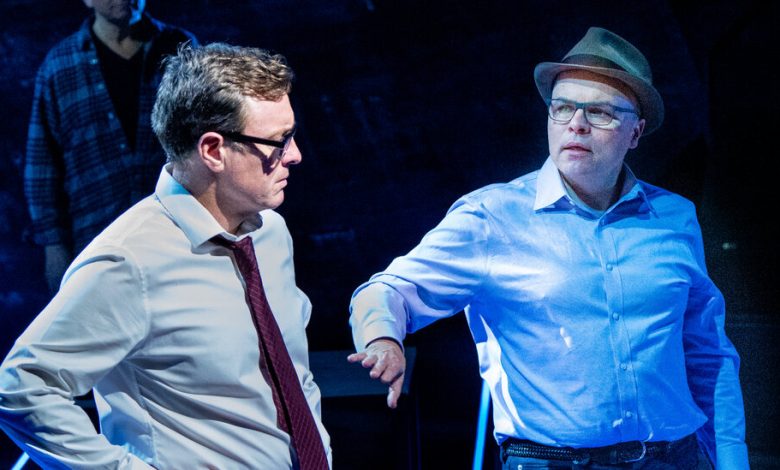A British Scandal Intrigued J.T. Rogers, Then He Went Down the Rabbit Hole

A now-faded note card taped above my desk reads: “Art, like light, needs distance.” Years ago, I wrote down that line from William Gass’s “On Being Blue,” and over the last few months it was a comforting reminder as I finished my new play “Corruption.” What was to be a history play about a media scandal in Britain has become a political thriller about some of the forces that seem to be upending our own country right now.
The inspiration came in 2012, while reading “Dial M for Murdoch: News Corporation and the Corruption of Britain,” a book by Tom Watson and Martin Hickman.Watson, a former member of the British Parliament, and Hickman, a former reporter for The Independent,had written of how Rupert Murdoch’s British newspapers and tabloids, including News of the World, were illegally hacking the phones of thousands of citizens — from celebrities to former prime ministers and even a missing 13-year-old girl, who was later found dead — all to get sensational stories that would sell newspapers. As the book made clear, more papers sold meant more profit; more profit meant more power to influence the levers of government.
The further I read, I realized that this could be a remarkable play. Like Bob Woodward and Carl Bernstein’s “All the President’s Men,” “Dial M” told a riveting story in granular detail about the use and abuse of power as a small group of vivid characters seeks to expose crimes that threaten their very democracy. Onstage it could become a sweeping tale in which the main characters take huge risks for their beliefs.
In an effort to adapt the book, I sent the authors two of my plays — “The Overwhelming” and “Blood and Gifts” — that are also about politics and power. Then I flew to London, and went down the rabbit hole.
Most of the key players would talk to me off the record only if they were certain that the Murdoch machine was unaware of our meeting. Even though News International, the British newspaper division of Murdoch’s media empire, was under investigation and Rupert and James Murdoch had apologized for their company’s actions in testimony before Parliament, people were afraid of speaking out because of the fear of retribution.
Many public figures and politicians who spoke out against Murdoch’s papers have revealed that those same papers tried to destroy their careers and ruin their lives. One such case involved a member of Parliament named Chris Bryant. During a parliamentary hearing, he got Rebekah Brooks, then the chief executive of News International, to acknowledge that News International had made payments to the police for information. Soon after, a rival paper published a photograph of him in his underwear that he had posted on a dating site, and then the Murdoch press ran with the story.




